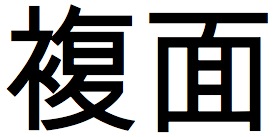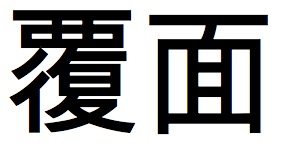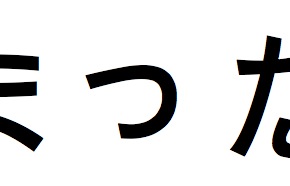I wrote for Let’s Go Japan during the summer of 2003. There were five or six of us writing that summer, and we all flew in to Tokyo before heading out in different directions. I went to Kamakura, Yokohama and Nagoya before heading to Shikoku, where I spent most of my two-month itinerary.
At first I was disappointed about being assigned to such a rural place; I’d only been to Japan once before and had only been able to spend a week or so in Tokyo, so I felt like I was missing out. Only later would I know how lucky I was to spend a month traveling around the highly underrated Shikoku, half of that with the refreshing freedom of a car.
While the landscape was breathtaking and the people were friendly, moving from town to town every day or two quickly became lonesome. I called the office a lot, called home a lot, and fortunately a Bulgarian friend in Nagoya hooked me up with some downloads to help me distract myself. He gave me a couple anime series and a movie or two, but I spent most of my time watching The Big Lebowski, which I’d been a fan of since renting it in ’98. Honestly, that summer alone I must’ve watched Lebowski a dozen times at least. I knew all the ins and outs of the film and even felt some 運命ness; there’s a Townes VanZandt version of the song “Dead Flowers” towards the end of the film, and a vinyl record bar I went to in Nagoya played a couple songs from Sticky Fingers.
(Did you know that in the dream sequence when the Dude gets knocked out by Maude’s goons, you can see that Maude was the one who rolled the ball?
)
So, equipped with a Region 2 DVD player, I’ve taken it upon myself to check out the localization of the movie. A couple weekends ago I watched it – twice. Once with the English language track and Japanese subtitles, and then again with the Japanese dubbing. This may not be a surprise to those familiar with Japan’s movie industry, but the dubbed version was notably better.
Not that the translation of the subtitles was poor. Not being a native speaker, I can’t speak for it completely, but in my biased opinion, it was good and caught a lot of the nuances of the film, even getting laughs out of my Japanese roommates.
But the dubbed translation itself was more accurate and creative. For example, when the Big Lebowski grills the Dude for fucking up the bag drop, the Dude says “We (おれたち) did drop the money,” eliciting a “We?” The subtitles are fairly 文字通り, getting close enough to the Dude’s “royal we” excuse, but the dubbed version goes with some creative Japanese: 「おれっち。言うでしょう?地方なんか行くと。」
The dubbed version does have a major advantage – time. As with subtitles in any language, you have to allow time for the viewer to read and comprehend the line, and when you have a movie with quick dialogue, it’s difficult to capture the feel with subtitles alone. Additionally, the fact that much of the dialogue in this movie is simultaneous makes the subtitles especially ineffective. You can hear the Japanese voices trying to speak over each other in the dubbed version, really helping express Walter’s frustration with Donny.
It also helped that the voice acting was absolutely impeccable; the accuracy with which the voice actors arranged their lines over Jeff Bridges’ and John Goodman’s mouthing was nothing short of incredible, and all of the give and take was more accurately portrayed with the dubbing.
But even the dubbed version misses parts of the critical element that really brings the film together – the role of discourse.
In the very first scene at the grocery store, President Bush on the screen drops the line “This aggression will not stand,” which the Dude later recycles when he confronts the Big Lewbowski. (“I do mind. The Dude minds. This will not stand…ya know. This aggression will not stand, man.”) The dubbed version catches this, reusing 侵攻/侵略 and variations of 許さない, but the subtitled version misses it.
Both miss the Dude’s final line of the movie, “The Dude abides.” This line the Dude recycles from when he was confronted by the Big Lebowksi – “I will not abide another toe.” The subtitled version uses ご免 and the dubbed 許さん for the first scene. In the final scene, the subtitled version has the cowboy say 「元気でな。気をつけて。」to which the Dude responds,
Whereas in the dubbed version the Dude responds with a less intrusively translated 「それがヂュードだし」 to 「気軽にやるんだよ。言うまでもないか。」 Neither relays the idea that the Dude has borrowed terminology yet again.
So what’s the point? The point is that The Big Lebowski is a subtly political film that shows the infectious role of discourse in society and how that discourse is often misrepresentation that leads to innocent victims. Unfortunately, the Japanese subtitles and dubbing don’t fully express this underlying theme of discourse, although I did learn the awesome curse word くそ食らえ.


 Booyah. As he noted, it means concealed or, in this case, unmarked. Thanks, Gulab. Sorry it took me so long to update this post!
Booyah. As he noted, it means concealed or, in this case, unmarked. Thanks, Gulab. Sorry it took me so long to update this post!




